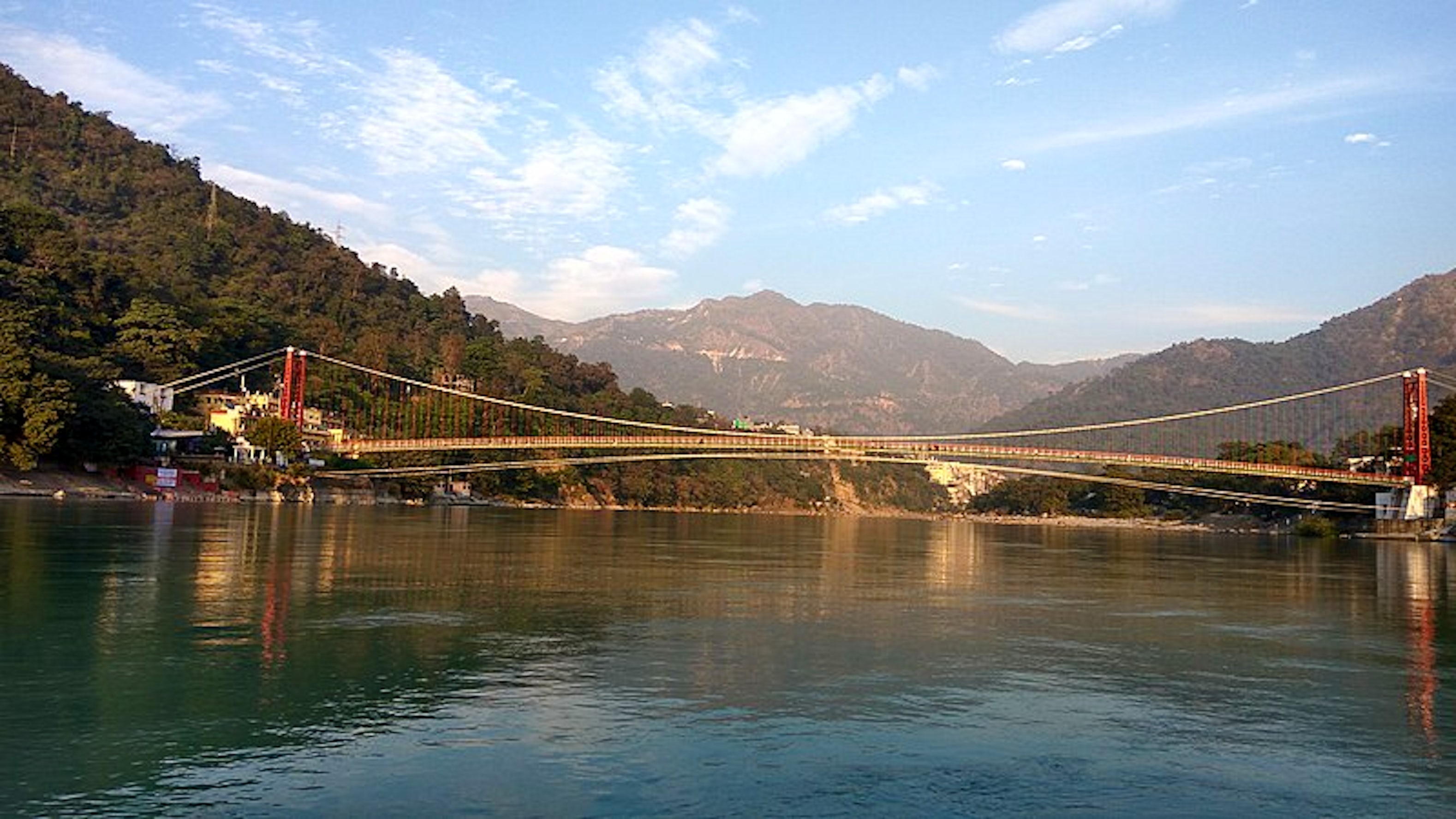
Laxman Jhula
Laxman Jhula, a prominent landmark in the town of Rishikesh, India, is an iconic suspension bridge that stretches across the holy Ganges River. The bridge, which is believed to be named after Lord Rama's brother Laxman from the ancient Hindu epic Ramayana, holds immense religious and cultural significance. Pilgrims and tourists flock to this site not only for its religious importance but also for the breathtaking views it offers of the surrounding lush greenery and the flowing river below. Laxman Jhula serves as a connecting link between various temples, ashrams, and yoga centers on both sides of the river, making it a hub of spirituality and tranquility.
Constructed in 1939, Laxman Jhula stands as a testament to both engineering marvel and religious heritage. The bridge is an architectural wonder, suspended at a height of 70 feet above the river, and stretches to a length of 450 feet. Over the years, it has become a symbol of Rishikesh's spiritual charm, attracting visitors from all walks of life. As one walks across the swaying bridge, the gentle sounds of the flowing Ganges and the distant chants from nearby temples create an enchanting atmosphere, leaving a lasting impression on all who experience it.
In recent years, Laxman Jhula has not only retained its religious significance but has also become a bustling tourist destination. Visitors come here to experience the blend of spirituality, adventure, and natural beauty that Rishikesh offers. The area around the bridge is lined with shops selling religious artifacts, clothing, and souvenirs, adding to the vibrant atmosphere. Laxman Jhula stands not just as a physical bridge but as a symbolic connection between the earthly and the divine, making it a must-visit destination for anyone seeking solace and spiritual enlightenment.

Triveni Ghat
Triveni Ghat, located in the holy town of Rishikesh, India, is a revered spiritual destination where the tranquil riverside ambiance merges with religious fervor. This sacred bathing ghat is situated at the confluence of three significant rivers in Hindu mythology – the Ganges, Yamuna, and Saraswati. Pilgrims and tourists alike flock to Triveni Ghat to take a holy dip in the purifying waters and perform various religious rituals. The ghat comes alive during the evening aarti (prayer) ceremony, where priests chant hymns, light oil lamps, and offer prayers to the deities, creating a mesmerizing atmosphere that reflects the essence of spirituality. It is believed that a dip in the confluence washes away one's sins, and the positive energy of this place leaves a lasting impression on every visitor's soul.
Triveni Ghat is not just a site of religious significance but also a cultural hub, bustling with activities. Apart from the religious rituals, the ghat offers a glimpse into the daily life of the locals and their unwavering faith. The colorful market surrounding the ghat is a shopper's paradise, offering a variety of religious items, clothing, and souvenirs. Additionally, Triveni Ghat serves as a base for adventure activities like river rafting and trekking, making it a multifaceted destination that captures the essence of spirituality, culture, and adventure, all in one serene location.

Neelkanth Mahadev Temple
The Neelkanth Mahadev Temple, situated in the picturesque state of Uttarakhand, India, is a revered Hindu temple dedicated to Lord Shiva. Nestled amidst the lush greenery of the Garhwal Himalayas, this sacred site holds immense religious significance and attracts pilgrims and tourists alike. The temple is named after Lord Shiva, who is also known as Neelkanth, meaning "the blue-throated one," a reference to the poison he consumed during the churning of the cosmic ocean. Devotees believe that the temple stands at the very spot where Lord Shiva halted after consuming the poison, making it a site of great spiritual importance. Pilgrims undertake a challenging trek through dense forests and steep trails to reach the temple, seeking blessings and solace in the divine presence of Neelkanth Mahadev.
With its tranquil surroundings and awe-inspiring architecture, the Neelkanth Mahadev Temple offers not only a religious experience but also a chance to connect with nature and spirituality. The journey to the temple is as enriching as the destination itself, allowing visitors to immerse themselves in the serene ambiance of the Himalayas while paying homage to one of the most revered deities in Hindu mythology. The temple's vibrant festivals and rituals further enhance the cultural experience, making it a must-visit destination for those seeking a harmonious blend of faith, nature, and architectural marvel in the heart of the Himalayas.
Attend yoga retreats

Experience Ganga Aarti

Explore adventure activities
